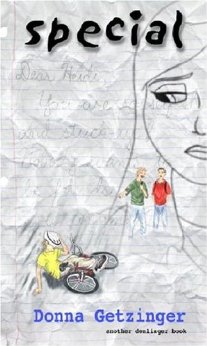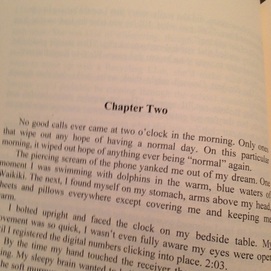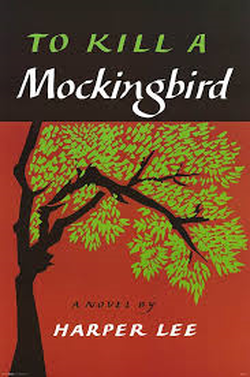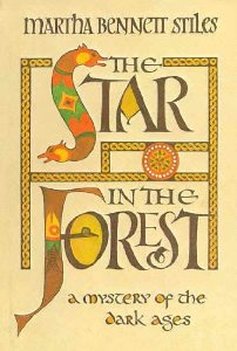 I have some good news: I’ve sold another book! Schoolwide Inc. will be publishing my MG novel No One Needed to Know in their digital library targeted to schools and educators next year. How this all came to be is a story that fits neatly with my Write and Rewrite themed blog. Back in 2004, a tiny little publisher called Denlinger’s Publishers took on my MG novel Special. This was a story based loosely on my experience as a girl with an older Autistic brother. The year this book was released was a hard year for me personally, as my 1st marriage dissolved and I suddenly became a single mother of a 3-year-old and had 3 jobs to make ends meet. I had little time to promote. Then a series of hurricanes hit Florida a couple years later, and they destroyed Denlinger’s facility. They went out of business, and my book went out of print. What to do with a novel that has been published and discarded? I put it in a drawer for a while. Ten years later, I decided that it was time to pull that book out again and tinker with it. I rewrote it by changing it to first person and updating it a touch. Then I started submitting it again under a new title and my new name. I learned about Schoolwide Inc., a 20 year old company dedicated to promoting literacy in classrooms and helping reluctant readers. They were looking to start a line of original content and were open to books that had gone out of print. I sent them mine. To my elation I heard back pretty quickly from one of the editors who told me he loved my book. He wrote glorious things like, “The world needs more books like this. It not only entertains, it educates. And it educates because you have written such an engaging story, with an authentic and sympathetic narrator.” But he followed that with: “While I am very excited about this project and hope to continue working with you on it, I feel that in its current form it is not ready for us to accept for publication.” Oh no! What? “I am inviting you to revise the work and resubmit it for our consideration.” Later, he qualified that it would be a “substantial revision”. His challenge to me was that if I revised the book (mostly by attacking the 2nd half of the book), he would consider publishing it. Oh, and he needed it done by October 1st in order to make the list coming out next year. I looked at the notes he gave me, and they all made perfect sense. I got right to work. Mostly what he wanted was for me to get away from anything that sounded like I was teaching the reader about Austism or Special Needs and stick to the immediacy of the story. I wound up discarding quite a bit, but I added so much more. I wound up tacking on 11,000 words to the book before I was done. I sent it back a couple weeks ago. Today I signed the contract and stuck it in the mail. I’m beyond thrilled that this story gets a second life and will be read by children in schools throughout the country. They have plans to do print versions down the road as well.  A few weeks ago, I wrote this essay as a guest post on the blog by author Nancy Pennick. In case you missed it there, I thought I'd repeat it here. “No good calls ever came at two o’clock in the morning. Only ones that wipe out any hope of having a normal day. On this particular morning, it wiped out hope of anything ever being “normal” again.” This was supposed to be the opening line of my novel Cry of the Sea. I was so proud of it. So proud! Yes, I envisioned its brilliance being quoted as one of the great opening lines of YA literature at many a writer’s conference for years to come. I loved it so much that no matter what I felt about the rest of the chapter, I was determined to keep that first line. Why was I so sure? Or stubborn? I have attended so many writing workshops and read so many books and articles about the craft of writing novels. Several things have been drummed into my head. “Have a great opening line.” “Hook your reader from the first moment.” “Start where the action is.” “Start your novel where the protagonist’s life changes from its normal routine.” “Start on the day that is different.” And my favorite? “Get to the main point of the plot before page 30.” So, I had this idea for a story about a girl who discovers mermaids caught in an oil spill. Based on everything I’ve learned, that meant she had to find the mermaids before page thirty. I also felt strongly that the story needed to start in the moments just before finding those mermaids. How best to do this? I thought it would be exciting to have her wake up to the alarming news of the oil spill and have her rushing out the door with her environmentalist father to get to the beach. There were some problems with my idea. I had to somehow very quickly introduce my main character and her father, their relationship, and the reason they were going to an oil spill. There was a lot of information to share to have the story make any sense. I thought I’d be clever and get some of that out with a little flashback to the night before in order to explain a few things. Only, that flashback grew from a few paragraphs to a dozen pages before coming back to the big rush to the beach. More important writing advice haunted me: “Don’t have a big flashback in the opening chapter.” “Don’t info dump.” “Show don’t tell.” Oh, poo on all of that. I had an awesome opening line! It had to stay this way. Well… I sent my first chapter to a few agents and editors. No one sent me back praise for my glorious first line. No one requested more pages either. I grew frustrated. Yet, I didn’t revise. I’d already revised the book over and over, and I didn’t know how to do it again. Not without ruining my opening line. The writing advice I knew conflicted in my brain. Bless the team at Fire and Ice, though. They stumbled past my opening chapter and read on to find the story that followed it. They offered to publish the book and sent Megan Orsini, my editor, to help me out. Her very first note to me: “I think the flashback in the opening chapter is too long. I forgot it was a flashback. Why don’t you make that the opening chapter and put the phone call and oil spill scene in chapter two.” But… but… That would put my opening line in chapter two. Do you hear me whining? I knew Megan was right, and I followed her advice. I wound up completely rewriting the whole opening to my book. With her guidance, I actually revised the opening chapter six times and the first page an additional two after that. Now my opening line is: “You ready to see how the next big change in your life is going to look” as asked by June’s father. No, this won’t put me in any lists of great opening lines, but it works. The book works better too. And guess what? We still meet mermaids on page 22. Yay! So, friends, what I’ve learned: don’t marry your words and do trust your editor. With a sly wink, however, I’m happy to announce that a woman who recently reviewed Cry of the Sea on her blog included a quote from my book. Which of my words did she use? My opening line – of Chapter Two.  Recently I saw an American Masters special on PBS about Harper Lee, the author of the classic children's novel To Kill a Mockingbird. Like most people, I've always loved the novel and considered it to be "perfect" books that have such depth and wisdom while still being entertaining to read. So, I was a bit startled to find out while watching the biography that this novel didn't flow easily from Lee's pen. She wrote it over a long period of time, and even after a year of dedicated work, quitting her job to devote all her time on it, the book was still not fully formed or publishable. Thankfully, agent Maurice Crain saw magic in her words and concept. Not many agents these days would take on a never published author whose work showed promise but was far from complete. I find that agents at writing conferences are always talking about how they enjoy helping authors mold their pieces, but the guidelines at their websites make it clear that they want books that are as close to publishable as possible. At any rate, Crain accepted her novel and sold it under the working titled of Atticus to editor Tay Hohoff at J. B. Lippencott publishers in New York. Hohoff said that the book was really a collection of short stories when he accepted it. "There were dangling threads of plot, there was a lack of unity - a beginning, a middle, an end that was inherent in the beginning," he remembered in an interview. He also said, "The editorial call to duty was plain." Again, I marvel at the fact that a publisher, knowing the book needed substantial work, took the project on and had faith it would turn out right in the end. With Hohoff's guidance, Harper Lee rewrote her novel three and half times and gave it the new now-famous title before it was ready to publish. It has been conjectured that one of the reasons Harper Lee didn't release a second novel until decades later is due to the fact that Hohoff retired and her agent, Maurice Crain, passed away. She was very reliant upon their help. This quote from Louisa Thomas of Newsweek in her article "Who Helped Harper Lee With Mockingbird?" sums it up: "We like to think of writers, like heroes, as isolated beings. To an extent, it's true; writing is often lonely and painful, a confrontation between the self and the blankness of the page. But a book is also shaped by the system of editors, agents, publishers, teachers, and readers." So, remember as you struggle with your drafts: even the great authors have to revise.  I'm hoping to have many, many authors come visit my blog to tell an experience they've had with editing or revision and share some before and after examples of their work. I'm thrilled that my first guest is a woman I greatly respect, veteran children's author, Martha Bennett Stiles. Martha: In 1978, I sent the manuscript of The Star in the Forest, over which I had labored off and on, for 10 years, to Judith Whipple, then at Four Winds Press. (She had published my first picture book, Dougal Looks for Birds). She returned the manuscript, saying, "Cut it in half and I'll take it. Good ol' Judy can't mean anything so draconian, I told myself, cut 33%, and dispatched it. She sent that MS back by return mail. "I said half," was all she wrote. You can bet I never trifled with her again, and we were happy together until she retired. At least, I was happy. For all I knew, she detested me and was patient for business reasons only. I hope not, because I did like her a lot. What she had found most objectionable about The Star in the Forest’s manuscript was that I described 3 battles and one would have sufficed; I gave the background stories on minor characters when there were quite enough major characters, thank you, to make a book close to too expensive to produce profitably. I described my hero Alarik’s forest journey within an inch of its life and the reader’s. And so on. So I’m grateful to Judy Whipple for making me expunge lots. Even cut as described, the book numbers 206 pages and weighs 9.6 ounces (“You could look it up.”). Of my 12 books, The Star in the Forest is one of my four favorites. School Library Journal gave it a starred review, and Jane Yolen gave it superlatives in her Guide to Writing for Children; I keep both in my prayers. Out of print, the book is offered by AbeBooks for prices ranging from $3.46 to $80.76; by Amazon, from $233 to a penny. An example of what I cut: not exciting and doesn’t advance the plot. The best morels grew under the birch trees along the brook that started somewhere deep in the forest and flowed, always imperceptibly broadening, through the meadows where the lyre-horned cattle grazed, between fields of rustling oat beards and bright wheat, into the river that turned Poijou’s mill. Valrada had gathered mushrooms along this brook all her life. Before she had been old enough to be trusted to know good from poisonous, she had known that when the little pink oak leaves stretched themselves squirrel-ear size, it was time for the harvest that appeared without sowing or tilling. She had soon learned that if she put a basket on her arm, she could toss embroidery hoops aside and wander all afternoon without being frowned at or sighed over, so long as she never brought the basket back absolutely empty. Once Valrada realized she was pretty, she had ceased to long to be a boy, but her strong preference for woods and stable over kitchen and weaving room remained. When the high hedge of beech and thorn that lined her path hid her from the Hall, Valrada took a deep breath, stretched out her basketed arms, and smiled.” Here are 3 paragraphs which made it to the printer: Alarik’s hand tightened on his spear and his lips began to move. Angels that run between the stars, give strength to my horse in this battle, that he shall not be tired and he shall not stumble and no weapon shall touch him and– A roar from the walls and the gates of Poitiers swung open. Rebel cavalry poured out onto the broad causeway, shrieking to God and St. Hilary, and charged the stunned Burgundian foot. Alarik’s lips stopped moving. Snow from Storm’s hoofs splattered Alarik to the waist; the wind whistled past. A neck behind, Lord Eurik was yelling like a madman. He saw Alarik look back and waved his shield. Lord Dag was still between him and Rikimer. The horses swept on with a noise like the surf, flanking the Burgundians. The rebels wheeled and charged to meet them. An arrow whined past Alarik’s shoulder. He ducked his head down further behind his shield and chose his man. The rebel carried his shield low, but Alarik never liked aiming for a face. The head could dodge too easily. Alarik’s spear took the rebel on the shoulder and lifted him out of his saddle. Storm bucked and Alarik freed his spear. He wanted to finish the rebel but a bay was bearing down on him. Storm faced the bay. Its rider’s teeth were bared, his helmet crest stiff like the ruff of a snarling dog. Then his shield hid him. Alark flung his spear underhand and took the bay in the chest. The poor beast crashed on its head: The rider was thrown under Lord Dag’s hoofs. Alarik drew his sword and in the moment he had to breathe, looked back for Lord Eurik. He saw the arrow hit Lord Eurik in the face.” Learn more about Martha Bennett Stiles and her books: www.marthabennettstiles.com http://mbstiles.spaces.live.com Sailing to Freedom 2012 Lonesome Road 1998 One Among the Indians 1962, 2006 |
D. G. DriverAward-winning author of books for teen and tween readers. Learn more about her and her writing at www.dgdriver.com Archives
July 2024
Categories
All
|
Author D. G. Driver's
Write and Rewrite Blog
“There are no bad stories, just ones that haven’t found their right words yet.”
A blog mostly about the process of revision with occasional guest posts, book reviews, and posts related to my books.

 RSS Feed
RSS Feed